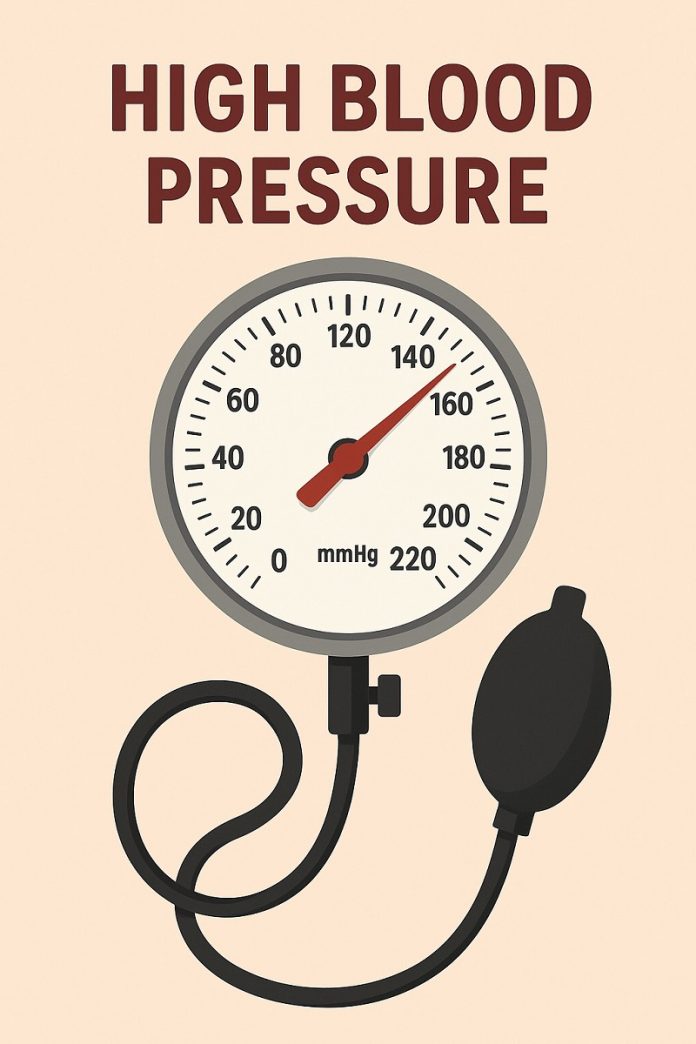
High blood pressure, or hypertension, is a serious condition that often requires medication to keep it under control.
These medicines can lower the risk of heart attacks, strokes, and kidney problems.
While they are highly effective, like any medication, they can come with side effects. Understanding these side effects can help patients feel more prepared and confident when managing their treatment.
The medications used to treat hypertension work in different ways. For example, diuretics, often called “water pills,” help the body get rid of excess salt and water through urine. This can help lower blood pressure, but it might also lead to frequent trips to the bathroom, especially when first starting the medication.
Some people taking diuretics may feel tired, dizzy, or notice muscle cramps due to the loss of potassium and other minerals. Eating potassium-rich foods, like bananas and oranges, or taking supplements under a doctor’s advice can help manage this.
Another common type of blood pressure medication is beta blockers. These drugs work by slowing the heart rate and reducing the heart’s workload. While they are effective, beta blockers can sometimes cause fatigue, cold hands or feet, and even mild depression in some people.
For those with asthma or other breathing conditions, beta blockers might occasionally worsen symptoms, so doctors carefully evaluate patients before prescribing them.
ACE inhibitors are another group of medicines used to manage high blood pressure. They relax blood vessels, making it easier for blood to flow. One of the most recognizable side effects of ACE inhibitors is a persistent dry cough.
Although harmless, this cough can be irritating, and in some cases, patients may need to switch to a different medication. ACE inhibitors can also cause a slight increase in potassium levels, which is usually not a problem unless potassium levels get too high.
Calcium channel blockers are another option for treating hypertension. These drugs help relax blood vessel walls and improve blood flow. Some people taking calcium channel blockers might experience swollen ankles, headaches, or flushing (a warm, red sensation on the skin). In most cases, these side effects are mild and go away over time, but they can be uncomfortable at first.
Another widely used group of medications is ARBs, or angiotensin receptor blockers. These work similarly to ACE inhibitors but are less likely to cause a cough. However, they can still lead to dizziness, fatigue, or mild stomach upset in some cases.
For some patients, doctors prescribe medications called alpha-blockers or alpha-agonists, which help lower blood pressure by relaxing blood vessels or slowing certain nerve signals. These medications are typically used when other treatments are not effective.
Side effects may include dizziness, fatigue, or a sudden drop in blood pressure when standing up too quickly, a condition called orthostatic hypotension.
It’s important to remember that not everyone experiences side effects, and most are manageable with the help of a doctor. Communicating openly with your healthcare provider is key. If a medication causes bothersome side effects, doctors can often adjust the dose or prescribe an alternative that works better for you.
Lifestyle changes, such as eating a healthy diet, exercising regularly, reducing salt intake, and managing stress, can also complement medications and reduce the need for higher doses.
While side effects can be frustrating, the benefits of controlling high blood pressure far outweigh the risks. Left untreated, hypertension can lead to life-threatening complications, so finding the right balance in treatment is essential.
By being aware of potential side effects and working closely with your doctor, you can successfully manage hypertension and protect your health in the long run.
Remember, never stop or change medications without consulting a healthcare provider. Your treatment plan is designed to keep you safe and healthy, and with the right support, it can help you lead a full and active life.
If you care about blood pressure, please read studies about blood pressure drug that may increase risk of sudden cardiac arrest, and these teas could help reduce high blood pressure.
For more information about health, please see recent studies about nutrient that could strongly lower high blood pressure, and results showing this novel antioxidant may help reverse blood vessels aging by 20 years.
Copyright © 2025 Knowridge Science Report. All rights reserved.





